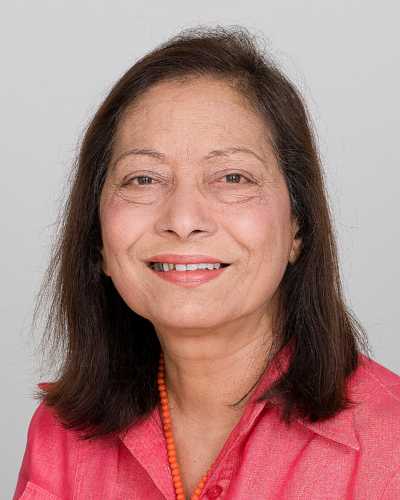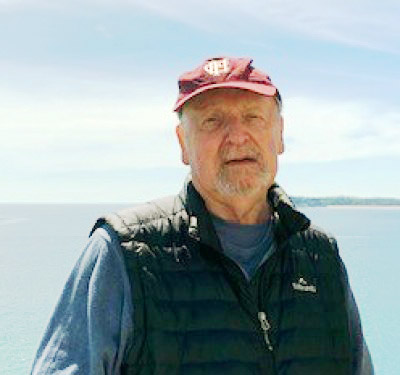Article type: Tribute
20 September 2024
Volume 46 Issue 1
HISTORY
RECEIVED: 29 August 2024
ACCEPTED: 29 August 2024
Article type: Tribute
20 September 2024
Volume 46 Issue 1
HISTORY
RECEIVED: 29 August 2024
ACCEPTED: 29 August 2024
![]() Remembering Dr Frank Ainsworth
Remembering Dr Frank Ainsworth

Elizabeth Fernandez1 Professor of Social Work
Affiliations
1 School of Social Sciences, Faculty of Arts, Architecture and Design, The University of New South Wales, Sydney, Australia
Contributions
Elizabeth Fernandez - Drafting of manuscript
Elizabeth Fernandez1
Affiliations
1 School of Social Sciences, Faculty of Arts, Architecture and Design, The University of New South Wales, Sydney, Australia
CITATION: Fernandez, E. (2024). Remembering Dr Frank Ainsworth. Children Australia, 46(1), 3029. doi.org/10.61605/cha_3029
© 2024 Fernandez, E. This work is licensed under the terms of a Creative Commons Attribution 4.0 International Licence
Dr Frank Ainsworth, Senior Principal Research Fellow at James Cook University, Townsville, Queensland, who has made significant contributions to the field of child welfare internationally, died on 5 July 2024, aged 87 years, following his declining health. For the last 10 years, he has been a Guardian ad Litem in the NSW justice system. A strong commitment to family-inclusive practice has motivated his campaigning for social justice for children and their parents, whose interests and rights he regarded as entwined. His passion and persistence have always come to the fore in discussing and writing about children and families touched by the child protection system and out-of-home care.
During his four-decade professional career, Frank made substantial contributions to worldwide research, practice and policy in the fields of protective services and out-of-home care, particularly residential care for children and youth, his professional presentations and publications attaining global reach. He has an impressive number of publications in international and Australian journals. Collaborating with Dr Leon Fulcher, Frank made numerous contributions to the theory and practice of residential care (Ainsworth & Fulcher, 1981; Fulcher & Ainsworth, 2006). His theoretical and empirical contributions to the international literature are significant. His work appears in major international collections, including the recent volume by Whittaker et al. (2023), which brings together policy and practice innovations and comparative data from 16 countries (Ainsworth & Bath, 2023).
In a personal reflection, Frank elaborated on his professional trajectory and international collaborations (Ainsworth, 2021). A graduate of Burnley Grammar School, UK, Frank received his professional social work qualifications from the London School of Economics and earned his doctorate at Boston College, MA, USA. He served on the faculty of University of Dundee, Scotland, where he held the first lectureship in residential care social work and contributed to the development of the course in diverse and creative ways, raising the profile of residential care in social work education. Frank assumed various teaching and advisory roles that enhanced the development and profile of group care for children and young people and other vulnerable groups. He was appointed to the Central Council for Education and Training in Social Work (CCETSW) in the UK as advisor on residential care practice as part of social work, a role in which he advanced the transition of specialist courses in residential care to mainstream social work education.
Supported with the award of a Nuffield Foundation Fellowship, Frank extended his collaborations with US-based scholars with a mutual interest in group care, including Professor Jim Whittaker (University of Washington, WA, USA), the late John Meier and the late Anthony Maluccio. More recently, as part of the International Working Group on Therapeutic Residential Care led by Professor Whittaker, Frank contributed to the Consensus Statement About Therapeutic Residential Care for Children and Youth (Ainsworth & Whittaker, 2017), which has been widely endorsed and published in Australia, UK, USA, Netherlands, Israel, Spain and Japan.
Frank’s doctoral dissertation and book, Family centred group care: Model building (Ainsworth,1997), emphasised the lifelong significance of family relationships and maintaining family links, putting the family of the child centre stage in residential care. This concept of family-centred group care has been a forerunner of the current emphasis on parental engagement. His book has been influential in the shift from viewing residential care as a substitute for parental care to conceptualising it as one that is child centred and family inclusive.
Frank moved to Australia in 1984 to take up the role of Head of School at Phillip Institute of Technology, Melbourne. He has been a major contributor to family-centred work and group care over the last three decades. He retained an active scholarly role in relation to residential services for children and youth, unpacking the empirical support for various conceptual models and the challenges and opportunities inherent in residential care in Australia.
Frank’s work makes the positive case for quality, time-limited residential care options to meet the needs of children and young people whose complex psychosocial needs require intensive therapeutic services that could not be met through family-based placements. He espoused the view that group care is an integral part of the continuum of services of child welfare systems and that some children can benefit from a period in a safe, well designed, professionally staffed residential care program (Mastronardi et al., 2020). Beyond the benefits of individual relationship-based social work practice in group care, he drew attention to the importance of leveraging the group environment and overall milieu in effecting healing and behavioural change, emphasising key components of care, treatment, nurture, safety and teaching of adaptive responses and living skills as integral to therapeutic residential care (Ainsworth & Bath, 2023; Huefner & Ainsworth, 2021).
Given his wealth of knowledge and depth of understanding of issues in residential care, Frank was appointed to the board of the Dunlea Centre (the original Australian Boys Town). For the last 6 years, Frank has been a consultant to the Executive Director of the Dunlea Centre, Paul Mastronardi. He was influential in the Dunlea decision to implement the Teaching Family Model as the practice framework at the Centre.
Frank also played an active role in challenging child protection policies and services (Ainsworth, 2023). With Patricia Hansen, his partner, supporter and collaborator, he has co-authored a number of critical pieces questioning policies and child protection decision making (for example, Ainsworth, & Hansen, 2011, 2015; Hansen & Ainsworth, 2009, 2011). Their advocacy for children and their parents in the child protection and out-of-home-care systems has been tireless.
I have known Frank as a personal friend and academic colleague. Our paths have crossed through our mutual research and teaching interests and our association with organisations such as the International Association for Outcome-based Evaluation and Research on Family and Children’s Services (iaOBERfcs) and attendance at its annual meetings hosted by the Fondazione Emanuela Zancan in Italy, in which Frank and Pat were involved in sharing their depth of knowledge and contributing to cross-national research.
Frank was unfailingly incisive, persistent and passionate in his treatment of the topics he addressed in his public presentations and publications. Passionate about the issues he espoused, Frank was never afraid to speak out about social justice issues. Professor Whittaker (Charles O. Cressey Endowed Professor Emeritus, University of Washington, WA, USA) applauds Frank’s 'tenacity and persistence in questioning and challenging policies' and Professor Martha Holden (Bronfenbrenner Center for Translational Research, Cornell University, NY, USA) notes 'his scholarship and advocacy for children and families is unparalleled'.
Dr Frank Ainsworth
Frank’s voice will be missed.
I join the editors and board members of Children Australia in marking the passing of Frank, a committed and generous scholar who has been a part of the editorial team since the inception of the journal. Frank made crucial contributions to the journal through his remarkable knowledge and critical intellect. Through his membership on the board, and his role as consultant editor, he contributed to the foundational intellectual quality of the journal. We honour his involvement and thank him for his contribution.
Elizabeth Fernandez AM PhD
Professor of Social Work
School of Social Sciences, Faculty of Arts, Architecture and Design, The University of New South Wales, Sydney, Australia
References
Ainsworth, F. (1997). Family centered group care: Model building. Aldershot, UK: Ashgate.
Ainsworth, F. (2021). A personal reflection: In for the long haul. Scottish Journal of Residential Child Care, 20.2, 1–9. pure.strath.ac.uk https://pure.strath.ac.uk/ws/portalfiles/portal/154975317/Ainsworth_SJRCC_2021_A_personal_reflection_in_for_the_long.pdf
Ainsworth, F. (2023). Modifying children's court care plans to acknowledge poverty and disadvantage. Australian Journal of Public Administration, 82(3), 394–399. DOI https://doi.org/10.1111/1467-8500.12568
Ainsworth, F., & Bath, H. (2023). Therapeutic residential care in Australia: A new dawn or more of the same? In J. K. Whittaker, J. F. del Valle, S. James & L. Holmes (Eds). Revitalizing residential care for children and youth: Cross-national trends and challenges. (pp. 391–404). London, UK: Oxford University Press. DOI https://doi.org/10.1093/oso/9780197644300.003.0026
Ainsworth, F., & Fulcher, L. C. (Eds) (1981). Group care for children: Concept and issues. London, UK: Tavistock Publications.
Ainsworth, F., & Hansen, P. (2011). The experience of parents of children in care: The human rights issue. Child & Youth Services, 32(1), 9–18. DOI https://doi.org/10.1080/0145935X.2011.553578
Ainsworth, F., & Hansen, P. (2015). Understanding difficult parental behaviours during a child protection investigation. Children Australia, 40(1), 20–22. DOI https://doi.org/10.1017/cha.2014.45
Ainsworth, F., & Whittaker, J. K. (2017). A consensus statement about therapeutic residential care for children and youth. Children Australia, 42(4), 285–286. DOI https://doi.org/10.1017/cha.2017.43
Fulcher, L. C., & Ainsworth, F. (Eds) (2006). Group care practice with children and young people revisited. New York, USA: Haworth.
Hansen, P., & Ainsworth, F. (2009). Human rights abuse in aspects of child protection practice? Australian Journal of Social Issues, 44(2), 183–193. DOI https://doi.org/10.1002/j.1839-4655.2009.tb00139.x
Hansen, P., & Ainsworth, F. (2011). In ‘the best interests of the child’: Critical reflections on an overused construct. Children Australia, 36(1), 12–17. DOI https://doi.org/10.1375/jcas.36.1.12
Huefner, J., & Ainsworth, F. (2021). Commentary: Recognizing the value of the milieu in therapeutic residential care for children and youth. Residential Treatment for Children and Youth, 38(3), 324–335. DOI https://doi.org/10.1080/0886571X.2021.1915225
Mastronardi, P., Ainsworth, F., & Huefner, J. C. (2020). Demonstrating the effectiveness of a residential education program for disengaged young people. Children Australia, 45(4), 312–316. DOI https://doi.org/10.1017/cha.2020.48
Whittaker, J. K., del Valle, J. F., James, S., & Holmes, L. (Eds) (2023). Revitalizing residential care for children and youth: Cross-national trends and challenges. London, UK: Oxford University Press.

